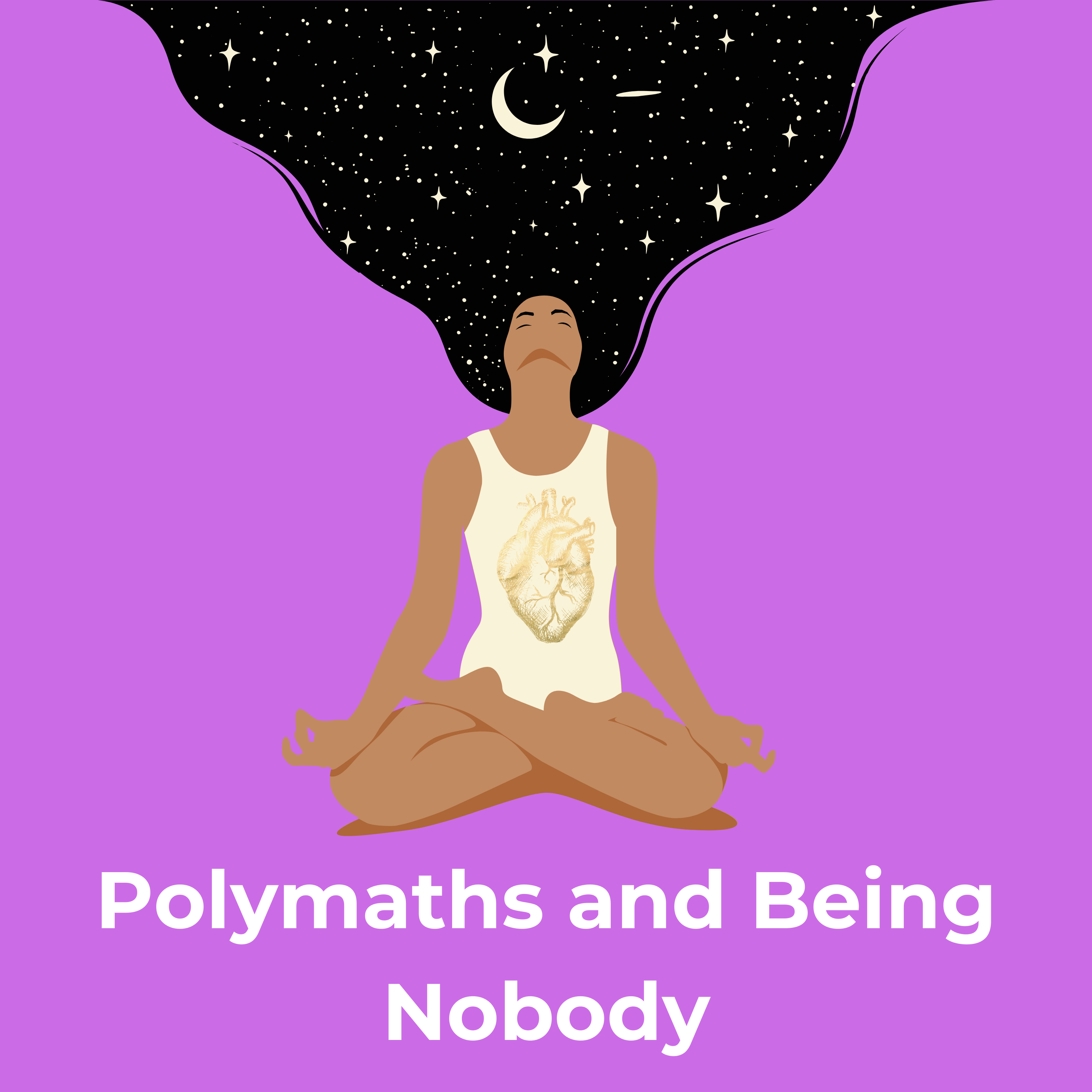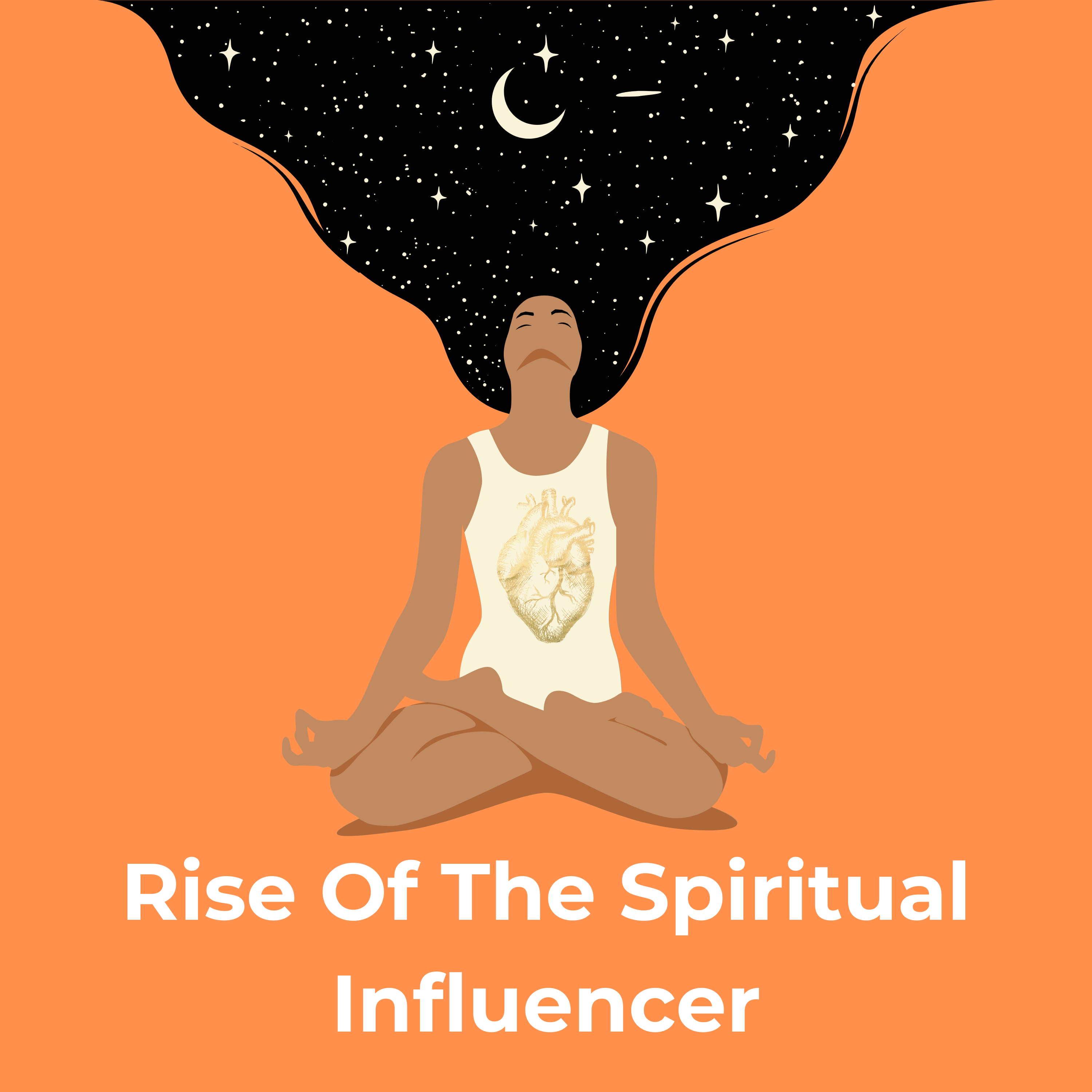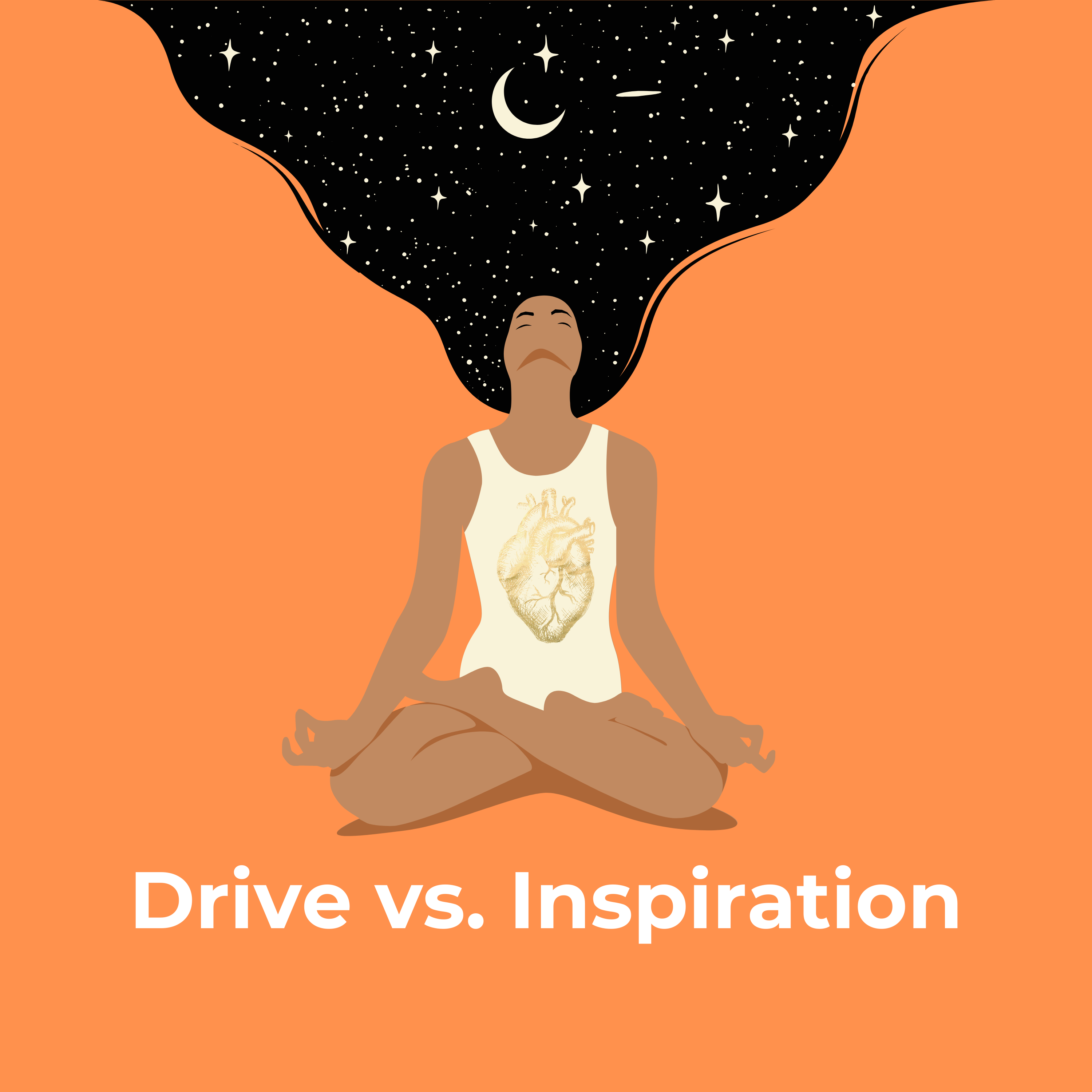Episode Transcript
[00:00:00] Speaker A: The world of healing can be treacherous, but suddenly spiritual aims to provide real, honest, practical, spiritual knowledge and wisdom for the true seekers among us.
The goal is to ignite the divine human within each listener, raising the collective consciousness for our planet. We will challenge your preconceptions, push your buttons, and encourage deep reflection. We're not here to adhere to the status quo of what the new age spiritual market wants you to buy into and believe. Consider this your antidote to the woo woo and a place of woo. You.
[00:00:54] Speaker B: I will never forget. One day I was driving down Rose Avenue with my friend, who was my roommate at the time in Venice Beach, California.
And we were going to the beach and I looked over at her and she looked so worried.
And I was wondering what she was worried about. And I kept asking her, like, what's wrong? You seem so worried. You seem almost just sad and scared.
And we're going to the beach, of all places, which if anybody's been to Venice beach or a little bit further down south, it's really nice. And it was during the summertime. And I kept prodding at her, what's going on? And finally she said, look, you know, this healer that I've been seeing for five years, I really feel like she's dialing it in and I need to break ties with her.
And I'm really scared that if I do that, she'll put something on me. And I said, put something on you? As in a curse? Is that what you're worried about? Like her actually casting a spell or curse which exists? Those things exist.
In my world, they exist. Again, take what I say and keep it. If you believe it. If you don't, toss it to the side. But in my world, curses and spells and hexes exist.
And again, I asked her that question, are you worried that she's going to put, like, a spell on you?
And my friend just looks at me and says, yeah, she has the power to do that.
And if I leave her, because I'm basically funding her lifestyle, because I see her regularly, that she'll do that.
And it really struck fear in my heart thinking about that, because I know that that can happen.
And so I started to talk to my friend about distancing herself, finding a way to slowly back away and not to upset this particular quote unquote healer so that she could disentangle herself from her. But she was very fearful, and she's not the only one that I've heard of this happening. Wherever someone will have a very trusted healer, everything in the beginning will seem fine.
And then the healer gets to the point because of very diffuse or non existent boundaries.
Seriously, boundaries come up all the time.
That lesson is a tough one to learn on the back end for sure, but because of the lack of boundaries, the healer will become more comfortable. And then there is a weird entanglement that happens. And I'm not saying all healers put curses, hexes and spells on people, but what I'm saying is that it does exist and it does happen.
And even people who have been in a spiritual community or doing a lot of work on themselves for an extended period of time, it happens to us, too.
And it's just, it's scary to think that that exists, but it's the reality.
[00:04:43] Speaker C: That'S interesting that we're talking about this, because if you have a healer that's somebody who's helping you on your spiritual journey, fear should be like, you shouldn't be fearing them. And this, this seems really complex, I think. I know for me, if I was in that situation, I wouldn't even walk away. I would be running the other way. And I love that you shared that story with your friend, because I think a lot of people who are listening to this, who may be in a similar situation, you know, having been brought up in an orthodox religion and now not being in that religion, looking backwards and going, hmm, I didn't know any better at the time, but I should have run the other way too.
And this can be something that a lot of people are going through right now, but then they'll break away from that, whatever religion it was and then go, hey, okay, I'm going to become more spiritual and then go to something and they kind of replace one with the other. As far as the judgment, the top down, the fear mongering, the, oh, I should do this, because this person knows and I don't. And I think we've talked about it previously, but that thread that's seen through all of this is enhancing your self awareness.
And I think trusting yourself and that voice is something we can all learn to do much better.
And being self aware enough to realize, hey, here's this new spiritual person that's helping me and I'm fearing them should be something. I think everybody should look internally and go, why am I fearing them? And if it's because of just a genuine fear of, oh, they're going to put, they're going to do this, they're going to do this.
The fear is based on and leads to you limiting the way you act. I think that is something everyone should be aware of, as opposed to the fear of growth, where I'm afraid to open up or I'm afraid to listen to this person because I've only done it this way. So I think splitting that hair there, the fear of I'm afraid what this person's going to do to me, where in fact, they should be helping you, as opposed to I'm afraid to let them help me.
[00:07:28] Speaker B: That is such an important, vital distinction because I have a teacher that you can classify my feeling, not my whole feeling, but some of my feeling towards her as fear. But it's not fear in the, she's going to do something to me, to harm me. It's she's going to see me in my most basic essence, and being seen in that way is very vulnerable, and I register it as fear versus she's gonna put a spell on me, you know, and something bad will happen. It's.
I feel exposed because this person is so skilled that they're going to see my truth, the truth that I hide from myself. And that is very uncomfortable, and it's very vulnerable and very tender.
That is an incredibly important distinction to make. And so the fear of being seen in cold, stark light, in your truth, that is for growth. The fear of someone putting a spell or a hex on you, not good. Definitely something that you should steer very.
[00:08:51] Speaker C: Clear from and before when listening, that is definitely an important one. But what else should they be looking out for? To be aware of.
[00:09:05] Speaker B: You know, nothing is original. I would love to say that people have only original thoughts and only original stories and only original writings, but a lot of information is recycled, repurposed.
But then there's a line that people cross where they straight up plagiarize stories, learnings, teachings, and give no credit or fudge certain details about it, but pass it off as their own story, which, I mean, this happened recently with Jay Shetty, who is a very well known, quote, unquote, spiritual influencer, guru, podcaster.
He wrote a book about being a monk. He was never a monk.
And he would pass off his stories.
Well, he would say that they were his stories, but in fact, they weren't his stories. They were stories of his teachers or maybe someone he knew. But again, taking stories and learnings and teachings of others and passing them off as your own and not giving credit where credit is due.
There was a teacher that I know where she was doing a workshop, and it sounded oddly familiar, like the content and the marketing almost of the workshop. And my friend calls me and is like, this is not her work. She stole this. She lifted it word for word from this person, and then she sends me the original workshop by someone else completely from five years ago. She lifted the whole thing from it. And I was like, wow.
And this is a teacher that I put on a pedestal. And I was like, oh, yeah, she's full of it. Like, there's no way I want to be involved in that.
And I think recently, oh, my gosh, what's her name? The woman who wrote girl, wash your face. The toxic positivity person. I forget her name. I'm glad I blocked it out. But she was taking Maya Angelou quotes and passing them off on their own as her work, her words on her instagram. And she has, like, millions of followers.
And people in the comments were like, isn't this a quote from Maya Angelou?
And sometimes those influencers don't even apologize about it.
It's like, oops, my bad. I mean, but when you have a teacher where they regurgitate stories, their stories sound a little too rehearsed.
They write books, and you're like, wow, this is a fantastical story. I wonder, is this true? It's hard to live in that way of just fact checking, meaning to fact check to everyone.
But with Jay shetty specifically, so many people trusted him, and there were numerous holes in his story and a lot of other not good, bitter tasting things that he was doing to position him as a spiritual influencer and guru status and all this other stuff.
But the plagiarism is something to definitely be aware of. And, you know, with AI, you can prompt AI to write in any voice you would like. So if I want to sound like Ram Dass, I can go into chat CPT and say, hey, chat GPT, write me something about grief and loss in the voice of Ram Dass, and it will spit out something that sounds like Ram Dass wrote it, but it's not Ram Das.
And so it's become even more challenging in ways, in a way now because of the tools that we have. But people are stealing left and right, and it's not cool.
[00:13:20] Speaker C: It's interesting we're talking about this because I know people listening, and myself, especially as I've embarked upon this spiritual journey to become more spiritual or to let my spirituality come out, maybe that's a better way to say it. I was never not spiritual, but suddenly I am.
I mean, I have my. My hands in all these different things. Like, I'm looking at this person and then, yeah, that's cool. They say this, and then, oh, this is cool. They're saying this. So obviously some people, they get to the point where they pull on this info and they're like, oh, I got to share it. And then, oh, people are willing to pay and that's cool because, and what I mean by saying it's cool is because we're all, nothing's original.
Like, we're all one and we're all influenced. And there's the kind of collective consciousness where everything's there, we're all pulling out from it.
But when people, like you said, are overtly copying stuff, as long as the information is positive for the person receiving it, even, and there's going to be two camps here, the person's consciously plagiarizing or because they've read so much, they've absorbed it and they don't know. They think it's original thought when it really isn't. And then, well, I guess there'd be three, too, with a chat GBT.
We can talk about that in another episode pocket.
[00:14:52] Speaker B: Yeah, for sure.
[00:14:54] Speaker C: If thats happening and the person receiving it is getting some benefit from it doesnt really matter where they came from, number one. Number two, I do see if somebodys passing it off as their own original thought, and then youre paying for that if theyre not going to indicate to you that it wasnt original, is that where the dishonesty comes in? And I see what you're getting there because the relationship with somebody trying to be more spiritual, the baseline should be truth, obviously.
How would somebody delineate that sort of minefield? Because I've seen that, too. Where somebody's quoted me something, I'm like, they really believe it and it's helping them, but it's actually from this person.
[00:15:49] Speaker B: It is the intention and the spirit behind the person who is sharing the information. The intention is very important. So if the intention is to sound smart or wise or learned because you want to make yourself look better, ego based.
Yeah, if it's ego based, I think that's the, that's the whole deal right there. Why? Why are you doing it? Like, why are you saying it? And if you're intentionally not saying that Alan Watts said this quote because you want to sound smart and cool like Alan Watts, then that's about you. That's not about helping somebody. It may help someone. It certainly will help someone because truth is truth and knowledge is knowledge. However, what is the spirit behind it?
It's for self aggrandizement.
It's not because you are wanting to be in service.
So it really is the intention.
[00:16:54] Speaker C: Something I've discovered, as I've increased my self awareness, as I've become more spiritual, let my spirituality come out more.
My intuition is increasing, and I guess I can't say increasing, because, again, it was always there. I'm listening to it more, but in a modern vernacular, my bullshit meter is super amazing right now as far as trying, seeing, and feeling intention from people. And I encourage people who are listening to go into that, because when you have somebody who is doing it for their ego or pretending I'm the thing at the top of the pyramid, and then everything else should. Everybody should follow me, you'll feel that right away. You'll just know something's off.
What else should people be looking for as far as something that's gonna indicate, hmm, maybe this person isn't who they pretend to be.
[00:18:11] Speaker B: Well, I wanted to circle back a little bit on the spirit of plagiarism.
Sean, you and I are not special. Like, we are not special at all, but also we are very special. We're both things at the same time.
And balancing that is, for me, I feel really important because it helps to keep ego in check when you realize I'm not special. I'm a human being on this planet, just like every other human being is. But I also am special. I have things that other human beings abilities that other human beings maybe don't have. So, or don't recognize, let's say. So keeping that mindset when someone has a balance of dignity and humility as a healer, that delicate balance, which, again, it's a. It's a practice, not a perfect, which is what my teacher would say. It's not a perfect. It's a practice.
That's. That's the sweet spot. Having that balance of I'm special, but I'm also not special.
And also, you can do and learn and be and have everything I have, plus more.
It is not unique to me.
It's available to everyone.
And when there are teachers who position themselves as gurus or influencers, I don't see a lot of that humility.
And humility is saying I made a mistake. Oh, I'm sorry. That Maya Angelou quote is from Maya Angelou. It's not from me. It's the recognition, again, of humility.
I made a mistake. And unfortunately, a lot of people who are. Have gotten to a certain level with, within the spiritual community, they don't have that humility.
And usually when. Usually the humility, the other side of that is, they have a lot of hubris.
Again, it's that self aggrandizement and it happens in subtle ways, too. But we're not special. And we are special.
Humility and dignity and balancing that. So I really wanted to bring that point home, because it's running rampant, and I'm seeing it everywhere. And it's making me really sad to see people create whole empires based on vulnerable people.
Because when you become suddenly spiritual, it can be really destabilizing and really uncomfortable. And you feel like your whole life has slipped upside down, and you don't know what's up and down.
And in that space, there are people out there who are predators.
And I don't think that's right at all. I'm very against that. I don't think you should capitalize on people who are in vulnerable states. I think you should try to support them as much as you can, in whatever way you can. And, yeah, it's just not good human behavior.



